
The Enchanting Gorce Mountains: Poland's Hidden Gem
Nestled in the heart of southern Poland, the Gorce Mountains offer a serene retreat for nature enthusiasts and adventure seekers alike. These mountains, part of the Western Beskids range, are known for their gentle slopes, dense forests, and stunning vistas. The Gorce National Park, established in 1981, is a sanctuary for diverse wildlife, including deer, lynx, and a variety of bird species. The Gorce Mountains are a haven for hikers, with well-marked trails that cater to all levels of experience. The most popular route is the red trail leading to Turbacz, the highest peak at 1,310 meters. From the summit, visitors are rewarded with panoramic views of the Tatra Mountains, Pieniny, and even the distant Babia Góra. In the winter, the region transforms into a snowy wonderland, perfect for cross-country skiing and snowshoeing. Beyond the natural beauty, the Gorce Mountains are steeped in cultural heritage. Traditional wooden chapels and shepherd huts dot the landscape, offering a glimpse into the area's pastoral past. Local folklore and legends add a mystical charm to the region. The nearby village of Ochotnica is a cultural hub, where visitors can experience authentic Polish hospitality and taste regional delicacies like oscypek, a smoked cheese made from sheep's milk.
Local tips in Gorce Mountains
- Visit in late spring or early autumn for the best hiking conditions and vibrant foliage.
- Pack layers, as the weather can change quickly in the mountains.
- Try the local oscypek cheese at one of the traditional shepherds' huts.
- Consider staying in a guesthouse in Ochotnica for an authentic cultural experience.
- Bring binoculars for bird watching in Gorce National Park.
The Enchanting Gorce Mountains: Poland's Hidden Gem
Nestled in the heart of southern Poland, the Gorce Mountains offer a serene retreat for nature enthusiasts and adventure seekers alike. These mountains, part of the Western Beskids range, are known for their gentle slopes, dense forests, and stunning vistas. The Gorce National Park, established in 1981, is a sanctuary for diverse wildlife, including deer, lynx, and a variety of bird species. The Gorce Mountains are a haven for hikers, with well-marked trails that cater to all levels of experience. The most popular route is the red trail leading to Turbacz, the highest peak at 1,310 meters. From the summit, visitors are rewarded with panoramic views of the Tatra Mountains, Pieniny, and even the distant Babia Góra. In the winter, the region transforms into a snowy wonderland, perfect for cross-country skiing and snowshoeing. Beyond the natural beauty, the Gorce Mountains are steeped in cultural heritage. Traditional wooden chapels and shepherd huts dot the landscape, offering a glimpse into the area's pastoral past. Local folklore and legends add a mystical charm to the region. The nearby village of Ochotnica is a cultural hub, where visitors can experience authentic Polish hospitality and taste regional delicacies like oscypek, a smoked cheese made from sheep's milk.
When is the best time to go to Gorce Mountains?
Iconic landmarks you can’t miss
Gorczański Park Narodowy
Discover the breathtaking landscapes and rich biodiversity of Gorczański Park Narodowy, a premier destination for hiking and nature exploration in Poland.
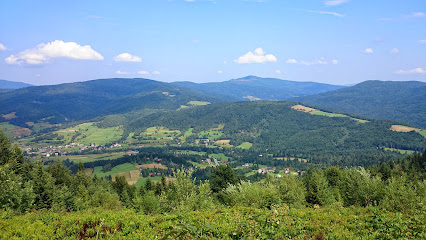
Zbójnicka Jama
Explore Zbójnicka Jama in Gorczański Park, a captivating cave filled with natural beauty and rich folklore waiting to be discovered.
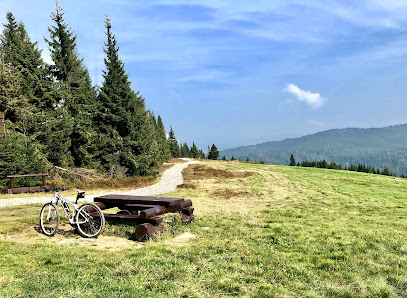
Pasmo Górskie Gorce
Experience nature's tranquility and breathtaking vistas in the Gorce Mountains, a premier destination for outdoor adventures and cultural exploration.

Unmissable attractions to see
Czorsztyn Castle
Discover the timeless charm of Czorsztyn Castle, a historical gem offering breathtaking views and rich heritage in Poland's Pieniny Mountains.
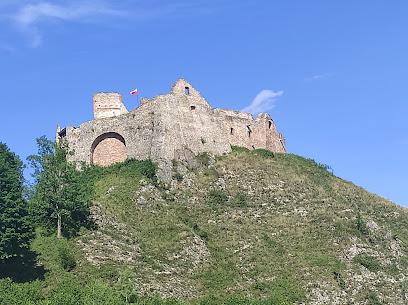
Spływ Dunajcem - Początek
Discover the breathtaking beauty of the Dunajec River with an unforgettable rafting experience in Sromowce Wyżne, Poland.
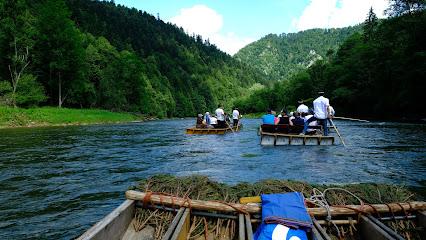
Muzeum Oscypka
Explore the rich tradition of oscypek cheese at Muzeum Oscypka, a cultural gem in the heart of Zakopane, Poland.
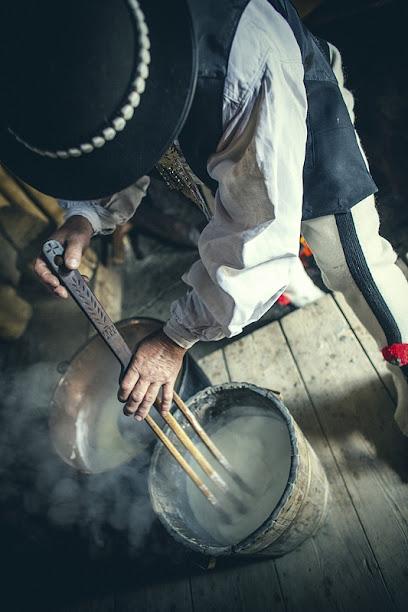
Gorczański Park Narodowy
Explore the natural wonders of Gorczański Park Narodowy, a national park in Poland renowned for its diverse wildlife and stunning hiking trails.
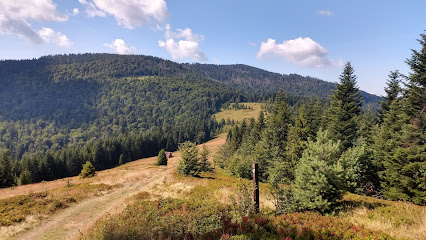
Kościeliska Valley
Explore the stunning natural beauty of Kościeliska Valley, a picturesque ravine in the heart of the Tatra Mountains, perfect for hiking and nature lovers.
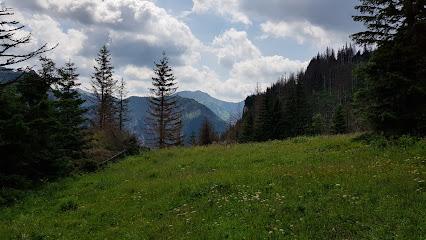
PORT PIENIN - Canoeing and Pontoon Rafting | Rafting on the Dunajec
Discover the beauty of the Dunajec River through canoeing and rafting at Port Pienin in Szczawnica, a thrilling adventure for nature lovers.
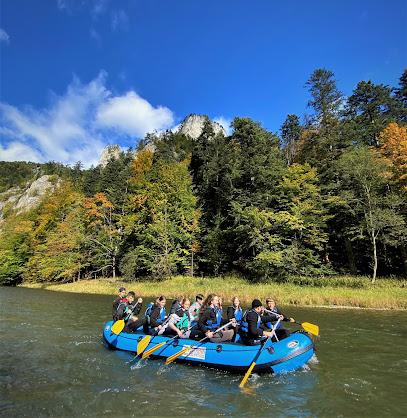
Dunajec Rafting
Discover the beauty of Pieniny through exhilarating Dunajec Rafting, where adventure meets stunning natural landscapes.
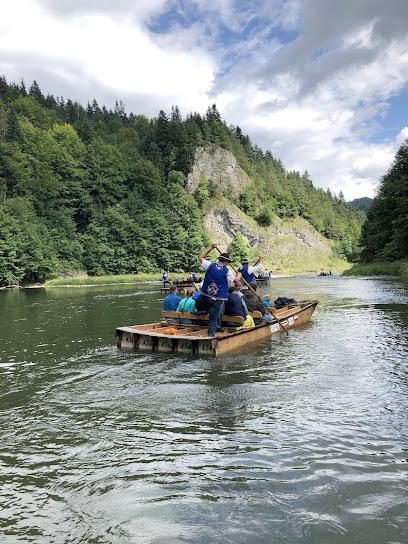
Spływ Dunajcem - Biuro spływu
Discover the beauty of the Dunajec River with thrilling rafting adventures in Sromowce Wyżne, Poland's stunning natural gem.
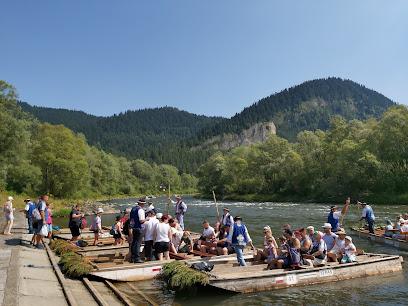
The Tatra Museum
Explore The Tatra Museum in Zakopane to uncover the captivating history and vibrant culture of the Tatra Mountains in Poland's stunning alpine landscape.
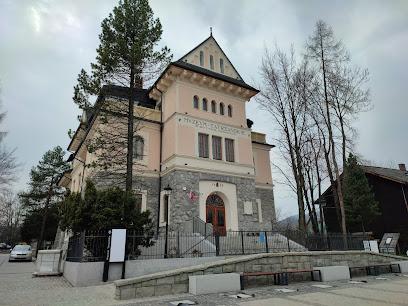
Centrum Przyrodniczo-Edukacyjne Brama w Gorce
Explore the breathtaking landscapes and rich biodiversity of Centrum Przyrodniczo-Edukacyjne Brama w Gorce, a must-visit tourist attraction in Poland.
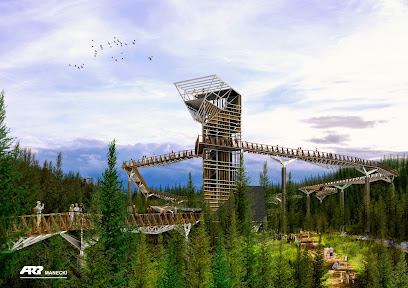
Spływ Dunajcem - Przystań pod Zamkiem
Experience the thrill of rafting on the Dunajec River at Spływ Dunajcem, surrounded by breathtaking landscapes and rich cultural heritage.
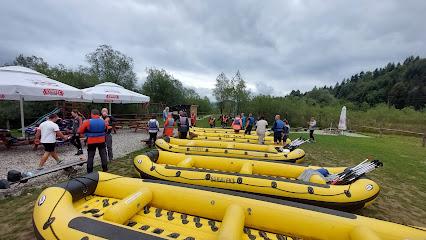
Rafting DUNAJEC
Discover the breathtaking beauty of the Dunajec River while enjoying thrilling water sports at Rafting DUNAJEC in Červený Kláštor.
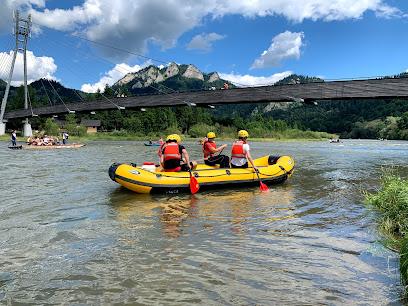
RiverFun - SPŁYW DUNAJCEM I RAFTING I KAJAKI DUNAJCEM | SPŁYWY KAJAKOWE I SPŁYWY PONTONOWE
Explore the breathtaking Dunajec River with RiverFun, the ultimate destination for rafting, kayaking, and unforgettable outdoor adventures in Poland.
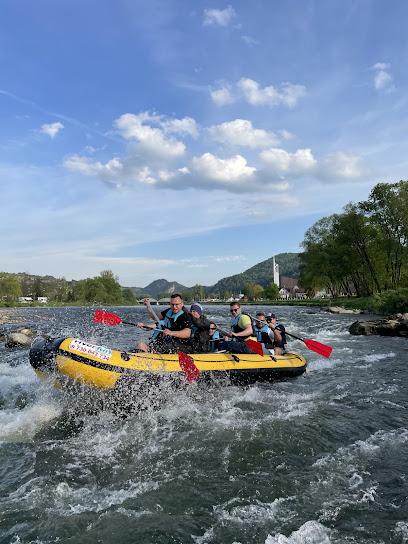
Fun Time - kajaki, rafting, rowery
Experience the thrill of kayaking, rafting, and cycling in the stunning landscapes of Sromowce Niżne at Fun Time - your adventure starts here.
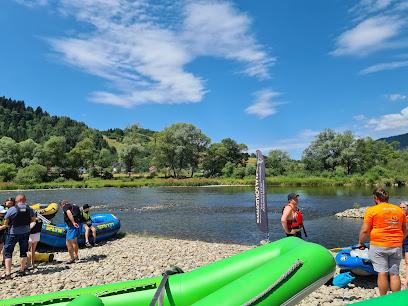
Observation tower on Magurka
Discover stunning panoramic views and natural beauty at the Observation Tower on Magurka in Ochotnica Górna, a must-see for all nature lovers.
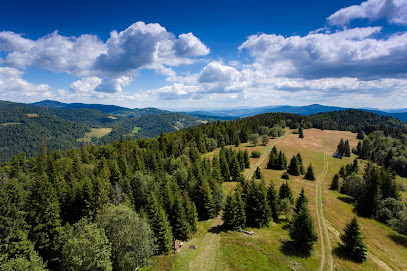
Essential places to dine
Rumcajs
Experience authentic Polish cuisine at Rumcajs, a charming self-service restaurant in Nowy Targ offering delicious meals at affordable prices.
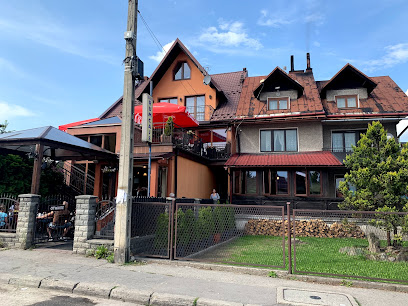
Karcma u Borzanka
Discover authentic Polish country cuisine at Karcma u Borzanka in Nowy Targ - where tradition meets taste.
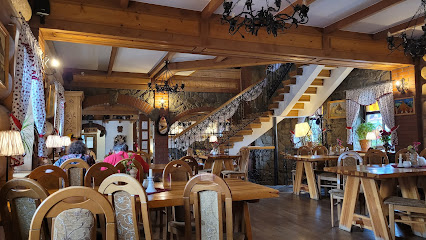
Karczma Na Rogu
Experience authentic Polish flavors at Karczma Na Rogu – a delightful country food restaurant in Czarny Dunajec.
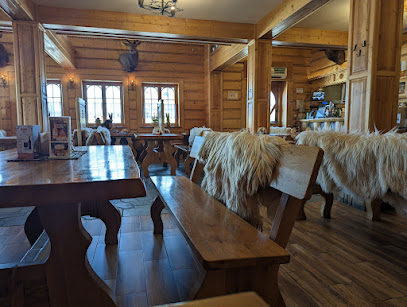
Restauracja Góralski Zwyk kuchnia regionalna
Savor authentic Polish cuisine in a family-friendly atmosphere at Restauracja Góralski Zwyk in Białka Tatrzańska.
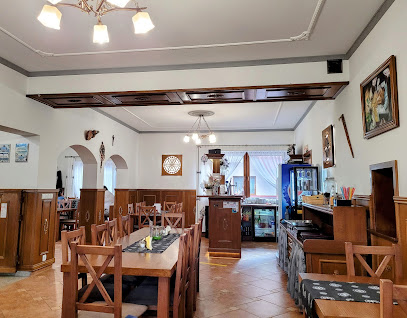
Markowa Zagroda - smażalnia pstrąga!
Discover Markowa Zagroda in Mizerna: A delightful fish restaurant offering fresh local dishes amidst stunning natural beauty.
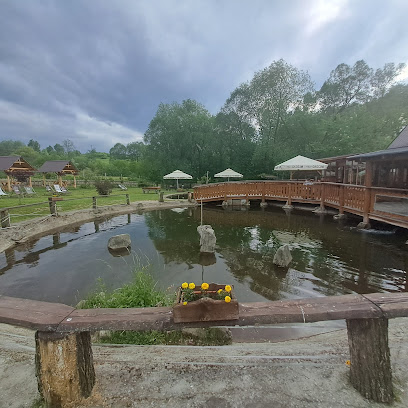
Dziki Byk Nowy Targ
Discover Dziki Byk in Nowy Targ: A culinary gem serving traditional Polish cuisine alongside vibrant nightlife in a warm atmosphere.
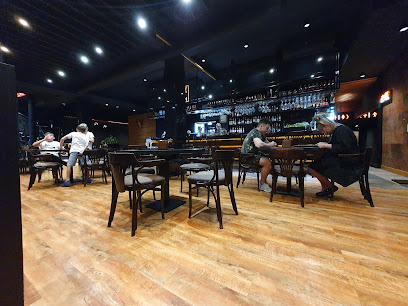
Restauracja Absynt
Discover the fusion of traditional Polish flavors and modern European cuisine at Restauracja Absynt in Nowy Targ.
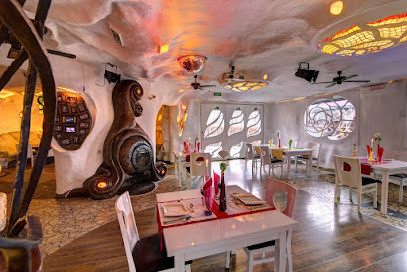
Góralsko Strawa
Experience authentic Polish cuisine at Góralsko Strawa in Nowy Targ—where tradition meets family-friendly dining.
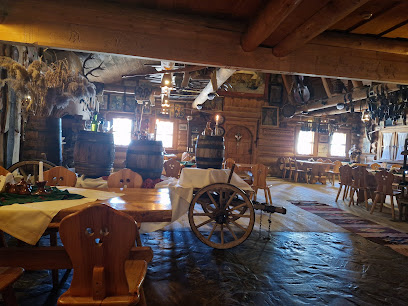
Restauracja Food Makerzy Kluszkowce
Discover the heart of Polish cuisine at Restauracja Food Makerzy Kluszkowce - where tradition meets flavor in every dish.

Folwark Stara Winiarnia
Discover Folwark Stara Winiarnia: A unique fusion of fine dining, art exhibitions, and vibrant cultural events in Mszana Dolna.
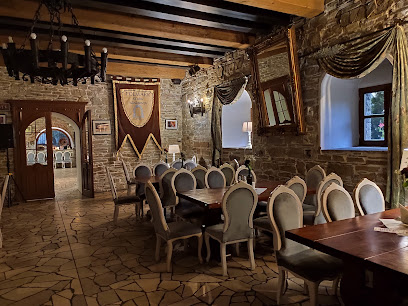
Restauracja Oranżeria
Discover the flavors of Poland at Restauracja Oranżeria – a family-friendly gem in Nowy Targ with diverse dishes and inviting ambiance.
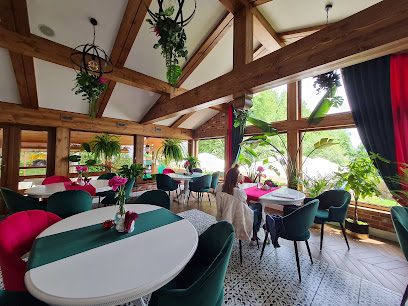
Restauracja Dworska
Discover the enchanting atmosphere of Restauracja Dworska in Kamienica - where exquisite Polish cuisine meets vibrant entertainment.
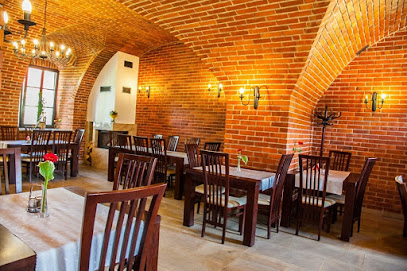
COOL-T Restaurant Mszana Dolna
Experience delicious hamburgers and pizzas at COOL-T Restaurant in Mszana Dolna – where taste meets tradition!
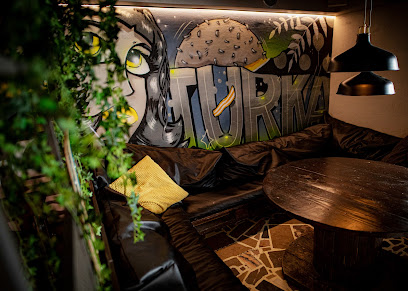
Restauracja Czarna Owca
Experience authentic Polish cuisine at Restauracja Czarna Owca in Nowy Targ - where tradition meets modern flavors.
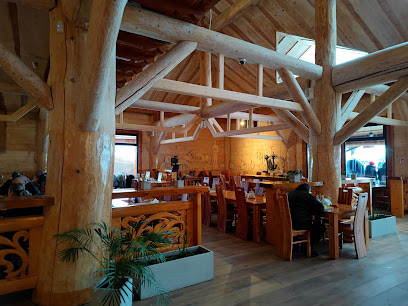
Karczma Młyn
Discover the charm of Polish cuisine at Karczma Młyn - where families gather for delicious meals in Kamienica.
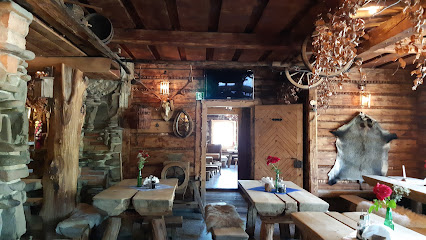
Markets, malls and hidden boutiques
Złote Tarasy
Experience the best of shopping, dining, and entertainment at Złote Tarasy, Warsaw's premier shopping mall located in the heart of the city.
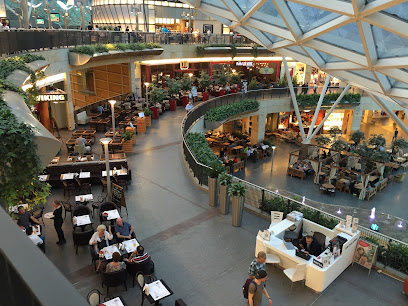
Galeria Krakowska
Explore Galeria Krakowska - the ultimate shopping mall in Kraków, blending modern retail with delightful dining experiences.

Galeria Bałtycka
Explore Galeria Bałtycka, Gdańsk's premier shopping mall, offering a wide variety of shops, delightful dining options, and family-friendly entertainment.
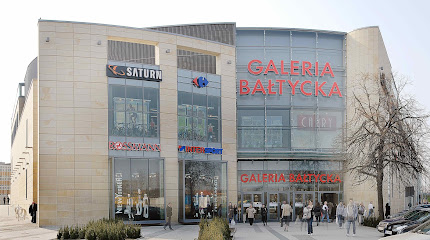
Nowa Targowica
Discover Nowa Targowica, a vibrant farmers' market in Nowy Targ offering fresh produce, handmade crafts, and a rich cultural experience.
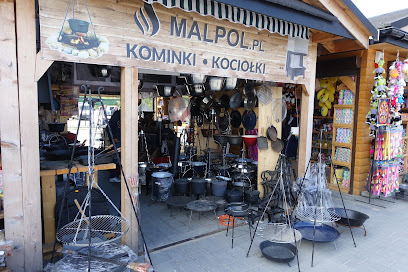
Gorczański Park Narodowy
Explore Gorczański Park Narodowy: Poland's breathtaking national park with scenic trails, diverse wildlife, and stunning mountain views.
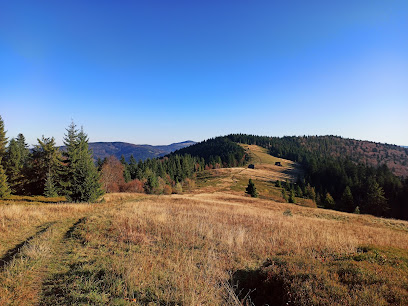
Wyskocz na! Rower, plaża, SUP, kawa nad Jeziorem Czorsztyńskim
Discover adventure and relaxation at Lake Czorsztyn, where cycling, water sports, and local delights await you in a stunning natural setting.
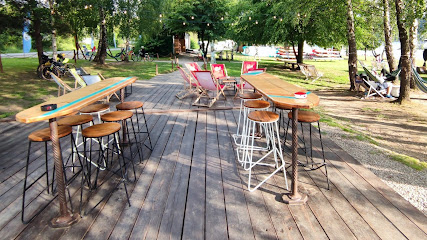
Action Nowy Targ
Explore the eclectic selection of gifts and local crafts at Action Nowy Targ, the ultimate shopping destination for tourists in Poland.

GORCE - Department store
Experience the vibrant shopping scene at Gorce Department Store in Nowy Targ, where local charm meets modern retail convenience.
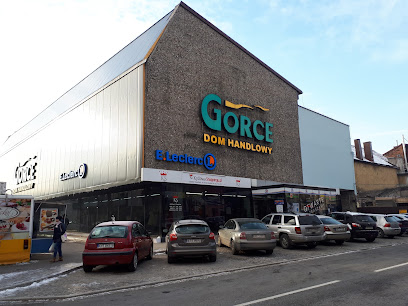
Cama Shopping - Internetowy sklep odzieżowy
Discover Cama Shopping in Jurków, where women's fashion meets quality and style in an exquisite online shopping experience.

Delikatesy Centrum
Discover Delikatesy Centrum in Ochotnica Dolna, a grocery store and deli offering local delicacies and international flavors for every traveler.
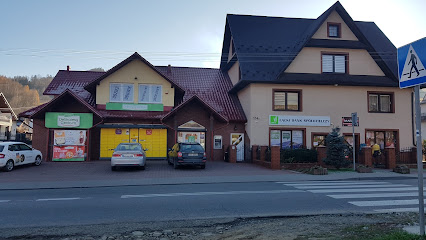
Gorce Mountains
Explore the breathtaking beauty of the Gorce Mountains in Poland, featuring stunning landscapes, diverse wildlife, and hiking trails for every adventurer.
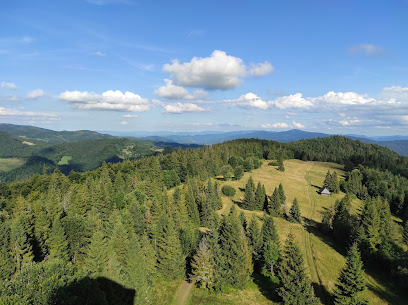
WelestiaShop.pl (Kosmetyki Samochodowe i części tuningowe)
Explore WelestiaShop.pl in Nowy Targ for premium car cosmetics and tuning parts, perfect for automotive enthusiasts and casual drivers alike.

Dla Gentlemana
Discover Dla Gentlemana in Poręba Wielka, Poland – your destination for exquisite men's fashion and accessories that define contemporary elegance.

OSCYPKI.pl
Explore OSCYPKI.pl in Nowy Targ, where gourmet delights and fresh local flavors await every food enthusiast.
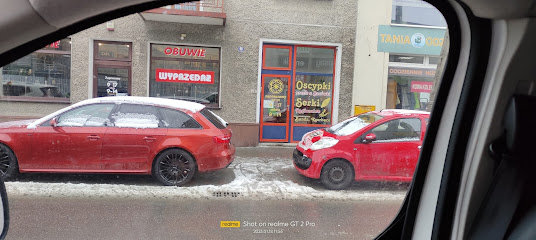
ACEGEAR
Discover top-notch computer accessories and exceptional service at ACEGEAR, your ultimate tech destination while traveling.
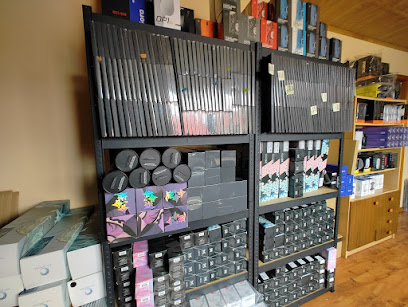
Essential bars & hidden hideouts
Bar U Romka
Discover the heart of Polish cuisine at Bar U Romka in Nowy Targ, where cozy ambiance meets delicious local flavors.
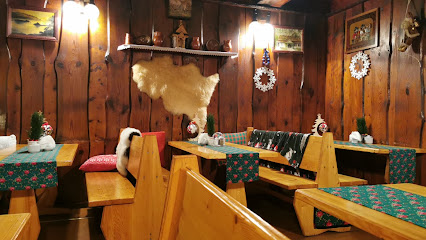
Dziki Byk Nowy Targ
Discover the vibrant flavors and atmosphere of Dziki Byk in Nowy Targ, where traditional Polish cuisine meets a lively bar experience.
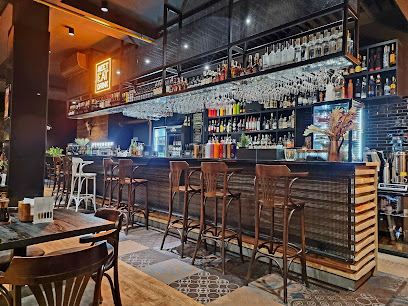
Bestwin RESTO BAR Mszana
Experience the vibrant flavors and lively atmosphere at Bestwin RESTO BAR, Mszana Dolna's premier destination for American cuisine and events.
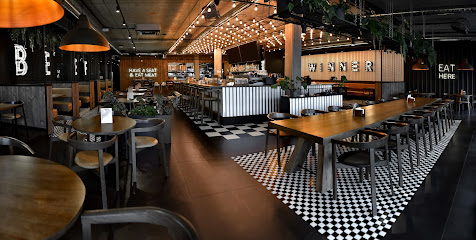
COOL-T Restaurant Mszana Dolna
Discover the culinary delights of COOL-T Restaurant in Mszana Dolna, where delicious hamburgers, pizzas, and great service await you.
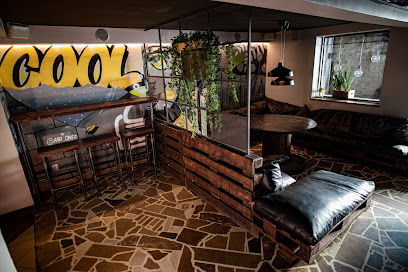
Pub Plama
Discover the lively spirit of Polish nightlife at Pub Plama in Nowy Targ, a charming bar offering local ales and a warm atmosphere.
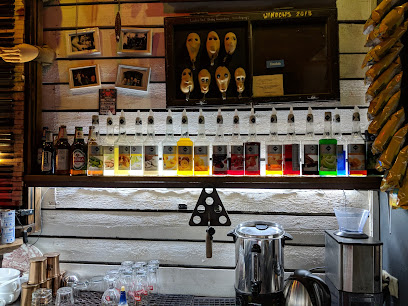
„Pod Śnieżnicą” (Pod Cyckiem)
Discover the authentic tastes of Poland at Pod Śnieżnicą, a cozy restaurant in Dobra that promises delicious meals in a welcoming atmosphere.
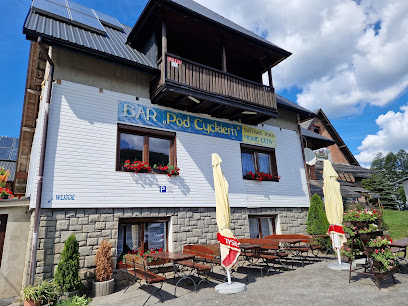
ValeVino - Winiarnia | Pub - Grzaniec, Wino, Miód Pitny
Discover ValeVino: Zakopane's premier wine bar offering exquisite wines, meads, and a cozy atmosphere for all wine enthusiasts.

Pub Pod Parasolkami
Discover the unique flavors of Myślenice at Pub Pod Parasolkami, a cozy brewpub offering local brews and delicious food in a vibrant atmosphere.
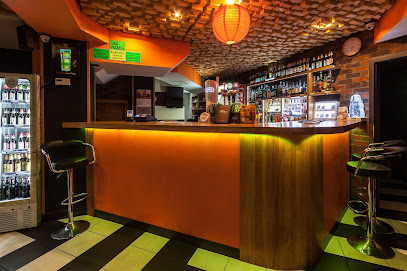
Green Bar
Experience the lively atmosphere and diverse drinks at Green Bar, a must-visit spot in the heart of Rabka-Zdrój.
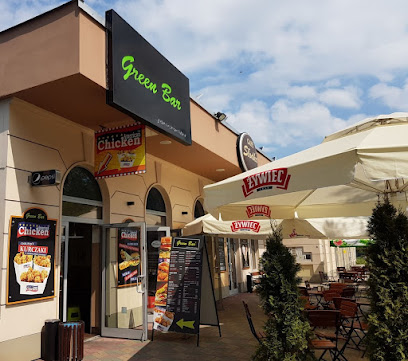
Velo Grill
Savor the authentic taste of Polish cuisine at Velo Grill, where local flavors meet breathtaking views in Falsztyn.
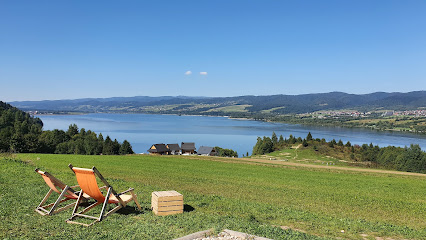
Bar/Pizzeria Enigma
Experience the perfect blend of delicious pizza and vibrant lounge atmosphere at Pizzeria Enigma in Jodłownik, Poland.

RestoBar Ogień
Discover the flavors of Pogorzany at RestoBar Ogień, where grilled delights meet warm hospitality in a picturesque setting.
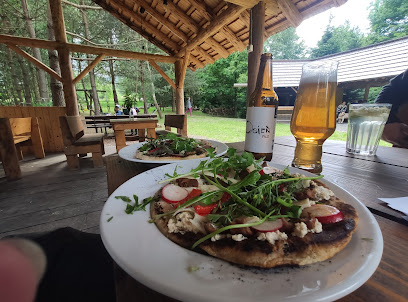
Bar Esmeralda
Experience the warmth of Polish hospitality at Bar Esmeralda, a charming bar in Słopnice offering delightful drinks and a cozy atmosphere.
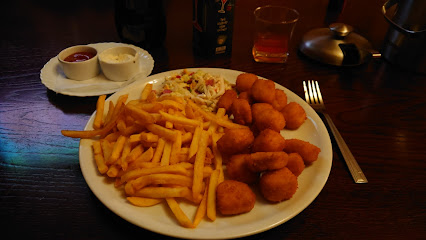
Bar Expresso
Experience the warmth of Irish hospitality at Bar Expresso, a cozy pub in Zakopane offering delectable dishes and a wide array of drinks.
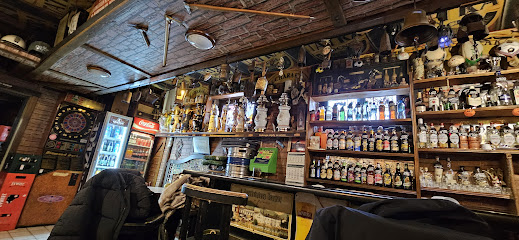
Local Phrases about Gorce Mountains
-
- HelloCześć
[cheshch] - GoodbyeDo widzenia
[doh veed-zen-ya] - YesTak
[tahk] - NoNie
[nyeh] - Please/You're welcomeProszę
[proh-sheh] - Thank youDziękuję
[jen-koo-yeh] - Excuse me/SorryPrzepraszam
[pshay-prah-sham] - How are you?Jak się masz?
[yahk shyeh mahsh] - Fine. And you?Dobrze. A ty?
[doh-bzeh ah tih] - Do you speak English?Czy mówisz po angielsku?
[chih moo-vish poh ahn-gyehl-skoo] - I don't understandNie rozumiem
[nyeh roh-zoo-myem]
- HelloCześć
-
- I'd like to see the menu, pleaseChciałbym zobaczyć menu, proszę
[h-chya-wbm zoh-bah-chich meh-noo proh-sheh] - I don't eat meatNie jem mięsa
[nyeh yem myen-sah] - Cheers!Na zdrowie!
[nah zdroh-vyeh] - I would like to pay, pleaseChciałbym zapłacić, proszę
[h-chya-wbm zah-plah-cheech proh-sheh]
- I'd like to see the menu, pleaseChciałbym zobaczyć menu, proszę
-
- Help!Pomocy!
[poh-moh-tsih] - Go away!Odejdź!
[oh-dehjch] - Call the Police!Zadzwoń po policję!
[zadz-vohn poh poh-leet-syeh] - Call a doctor!Zadzwoń po lekarza!
[zadz-vohn poh leh-kah-zah] - I'm lostZgubiłem się
[zgoo-bee-wem shyeh] - I'm illJestem chory
[yeh-stem hoh-rih]
- Help!Pomocy!
-
- I'd like to buy...Chciałbym kupić...
[h-chya-wbm koo-peech] - I'm just lookingTylko się rozglądam
[tih-koh shyeh rohz-gwah-dahm] - How much is it?Ile to kosztuje?
[ee-leh toh kohs-too-yeh] - That's too expensiveTo jest za drogie
[toh yest zah dro-gee-eh] - Can you lower the price?Czy możesz obniżyć cenę?
[chih moo-zhesh ohb-nee-zhich cheh-neh]
- I'd like to buy...Chciałbym kupić...
-
- What time is it?Która jest godzina?
[ktoo-rah yest goh-dzih-nah] - It's one o'clockJest pierwsza
[yest pyehr-vshah] - Half past (10)Pół godziny (10)
[poow goh-dzih-ny (dzyeh-sehm)] - MorningRano
[rah-noh] - AfternoonPopołudnie
[poh-poo-wood-nyeh] - EveningWieczór
[vyeh-choor] - YesterdayWczoraj
[v-choh-rye] - TodayDziś
[jeesh] - TomorrowJutro
[yoo-troh] - 1Jeden
[yeh-den] - 2Dwa
[dvah] - 3Trzy
[tshih] - 4Cztery
[ch-teh-rih] - 5Pięć
[pyehnch] - 6Sześć
[sheshch] - 7Siedem
[shyeh-dem] - 8Osiem
[oh-shem] - 9Dziewięć
[jeh-vyenhch] - 10Dziesięć
[jeh-shyenhch]
- What time is it?Która jest godzina?
-
- Where's a/the...?Gdzie jest...
[gdzyeh yest] - What's the address?Jaki jest adres?
[yah-ki yest ah-drehss] - Can you show me (on the map)?Czy możesz mi pokazać (na mapie)?
[chih moo-zhesh mee poh-kah-zahch (nah mah-pyeh)] - When's the next (bus)?Kiedy jest następny (autobus)?
[kyeh-deh yest nah-stehp-ny (ow-toh-boos)] - A ticket (to ....)Bilet (do ....)
[bee-let (doh)]
- Where's a/the...?Gdzie jest...
History of Gorce Mountains
-
The Gorce Mountains have a rich prehistoric past, with evidence of early human settlements dating back to the Neolithic period. Archaeological findings suggest that the region was inhabited by various tribes who utilized the natural resources of the mountains for hunting, gathering, and later, for agriculture. The dense forests and abundant wildlife made this area a vital part of early human survival and development.
-
In the Middle Ages, the Gorce Mountains became a significant part of the Kingdom of Poland. The region saw the establishment of numerous settlements and villages. The introduction of Christianity in the 10th century led to the construction of wooden churches and chapels, some of which still stand today, showcasing the unique architectural style of the period. The area also became known for its shepherding culture, with traditional wooden huts and grazing practices that continue to influence the region's culture.
-
During the 18th century, the Gorce Mountains played a pivotal role in the Bar Confederation, a Polish national movement against Russian influence. The rugged terrain provided a natural stronghold for the confederates, who carried out guerrilla warfare against occupying forces. The Tatra Confederation's efforts are commemorated in local folklore and monuments, highlighting the region's contribution to Poland's fight for sovereignty.
-
The Gorce Mountains were a significant site of resistance during World War II. The area's dense forests and remote location made it an ideal base for the Polish Home Army (Armia Krajowa) and other partisan groups fighting against Nazi occupation. Many local inhabitants supported these efforts, providing shelter and supplies. The region witnessed numerous skirmishes and acts of sabotage, and several memorials and museums today honor the bravery and sacrifices of these resistance fighters.
-
After World War II, the Gorce Mountains underwent significant changes. The establishment of Gorce National Park in 1981 marked a major effort to protect the area's unique natural environment and biodiversity. The park encompasses a variety of ecosystems, including dense forests, alpine meadows, and numerous endemic species of plants and animals. This focus on conservation has helped preserve the region's natural beauty and cultural heritage, making it a popular destination for eco-tourism and outdoor activities.
-
The Gorce Mountains are steeped in rich cultural traditions and folklore. The highlander (Górale) culture is particularly prominent, with its distinctive music, dance, and colorful costumes. Traditional crafts, such as wood carving and sheep herding, remain integral to the local way of life. Festivals and events throughout the year celebrate these customs, offering visitors a glimpse into the vibrant cultural tapestry that defines the region.
Gorce Mountains Essentials
-
The Gorce Mountains are located in southern Poland, within the Lesser Poland Voivodeship. The nearest international airport is John Paul II International Airport Kraków-Balice, approximately 80 kilometers away. From Kraków, you can take a bus or train to Nowy Targ, which is the gateway to the Gorce Mountains. The journey typically takes around 2 hours by bus or 1.5 hours by train. Alternatively, you can rent a car and drive to the region, which provides flexibility to explore the area at your own pace.
-
Once in the Gorce Mountains, there are several transportation options. Local buses connect major towns like Nowy Targ, Rabka-Zdrój, and Krościenko nad Dunajcem. Taxis are available but can be pricey. Many visitors prefer to rent bikes or hike to explore the scenic trails. For those who wish to go deeper into the mountains, renting a car or using local shuttle services to trailheads is advisable.
-
The official currency in Poland is the Polish Złoty (PLN). Credit and debit cards are widely accepted in hotels, restaurants, and larger shops in the Gorce Mountains area. However, it's advisable to carry some cash, especially when visiting smaller villages or rural areas. ATMs are available in larger towns like Nowy Targ and Rabka-Zdrój.
-
The Gorce Mountains are generally a safe destination for tourists. However, standard precautions should be taken. Avoid walking alone at night in unfamiliar or remote areas. Petty theft can occur, so keep an eye on your belongings, especially in crowded places. There are no specific high-crime areas targeting tourists, but it is always best to stay vigilant and aware of your surroundings.
-
In case of emergency, dial 112 for immediate assistance. This number connects you to all emergency services, including police, fire, and medical services. Local police stations and medical facilities are available in towns like Nowy Targ and Rabka-Zdrój. It is recommended to have travel insurance that covers medical emergencies. Pharmacies are available in larger towns for minor health issues.
-
Fashion: Do wear practical and comfortable clothing suitable for hiking and outdoor activities. Avoid wearing flashy or expensive jewelry. Religion: Do respect local religious customs, especially when visiting churches. Dress modestly and cover your head if required. Public Transport: Do be punctual and purchase your tickets in advance. Don’t talk loudly or disturb other passengers. Greetings: Do greet people with a 'Dzień dobry' (Good day) or a simple handshake. Eating & Drinking: Do try local delicacies and be polite when offered meals. Don’t waste food, as it is considered impolite.
-
To experience the Gorce Mountains like a local, visit the local markets and small shops where you can buy regional products and traditional Polish goods. Engage with locals, as they are often friendly and willing to share stories about the region's history and culture. Don’t miss the opportunity to hike the Główny Szlak Beskidzki (Main Beskid Trail), which offers breathtaking views and a chance to see the unique flora and fauna of the region. For a unique experience, visit the Gorce National Park and take part in guided tours or educational programs.
Nearby Cities to Gorce Mountains
-
Things To Do in Krakow
-
Things To Do in Poprad
-
Things To Do in Tarnow
-
Things To Do in Bielsko-Biala
-
Things To Do in Prešov
-
Things To Do in Martin
-
Things To Do in Žilina
-
Things To Do in Banská Bystrica
-
Things To Do in Košice
-
Things To Do in Gliwice
-
Things To Do in Rzeszow
-
Things To Do in Ostrava
-
Things To Do in Kielce
-
Things To Do in Czestochowa
-
Things To Do in Salgotarjan











